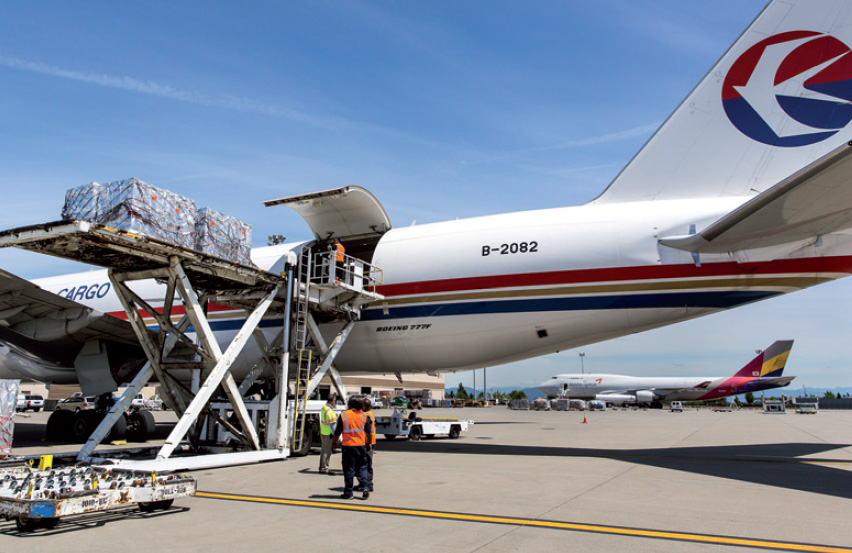Port executive details tariff impact to House
By Linda Deng in Seattle | China Daily USA | Updated: 2018-04-17 14:06

$28b in Chinese imports passed through Seattle, Tacoma hubs in 2017
China is a crucial part of the business of major ports in Washington state, a transportation executive told a House panel at a hearing on the impact of tariffs.
"Our success as an airport and seaport gateway is inextricably linked to China," John Wolfe, CEO of the Northwest Seaport Alliance (NWSA), told the House Ways and Means Committee in Washington DC last Thursday.
"Last year, more than $27 billion in imports from China came through Seattle and Tacoma cargo terminals, with an additional $1.1 billion in imports from China via Sea-Tac," he said.
The Northwest Seaport Alliance is a marine cargo operating partnership of the ports of Tacoma and Seattle and the fourth-largest container port complex in the United States.
Sea-Tac is the Seattle-Tacoma International Airport.
"In addition, almost $5 billion in exports to China traveled through our cargo terminals in 2017, plus another $2.2 billion in exports to China through Sea-Tac," Wolfe said.
He said that "while it is impossible to truly estimate the impact of these tariffs, roughly $8 billion in two-way trade through our airport and seaport will potentially face some level of increased tariff".
The American Association of Port Authorities estimates that for every $1 billion in exports shipped through US seaports, 15,000 jobs are created, and the converse is likely true as well, which means that this $8 billion in trade likely represents 120,000 jobs, he said.
"The risk is significant because thousands of our jobs are tied to trade," Wolfe told China Daily on Monday. "Our marine cargo operations in our Seattle and Tacoma harbors support more than 48,000 jobs, while Sea-Tac's air cargo operations help create over 5,200 jobs."
Also, more than 60 percent of goods imported through the NWSA are sent beyond the Northwest region.
"Our greatest concern is that we are going to potentially affect jobs associated with trade in the state of Washington, and it is not only in our state. We would also risk impact through the whole supply chain in the Upper Midwest," Wolfe said.
"For example, $2.5 billion in imports of industrial and electric machinery move through ports of NWSA into Illinois, while Ohio and Indiana respectively import $1.9 billion and $1.2 billion worth of these products through our ports," Wolfe said. "This is true for exports as well; last year the gateway sent $1.89 billion in soybeans to China, yet none are grown in the state of Washington."
In recent weeks, Wolfe has reached out to some of the alliance's export customers, such as fruit growers.
"They are worried if there is uncertainty in their ability to provide a set price. Those global markets will leave to other market opportunities to purchase those goods," Wolfe said.
Cherries are a good example of the tariffs' potential impact, he said.
"The Northwest cherry harvest creates an estimated 19,000 jobs and generates $540 million in economic impact," Wolfe said. About 30 percent of the cherry crop is exported, and a majority is flown from Sea-Tac.
China is the top export market for Washington cherries, importing 2.9 million cases valued at $127 million a year.
If the Chinese market were closed to those exporters, "they are going to have a very difficult time finding alternative markets for their seasonal, perishable crop", Wolfe said.
"I believe that at the highest levels of leadership between the US and China, there is recognition that we need each other," he said. "We are dependent upon each other's economy for the health of our own economies. So the leadership of two countries will sit down, and have detailed discussions."
"In enforcing our trade laws, we should always take a targeted approach to address unfair practices while avoiding harm to US workers and job-creators," Ways and Means Chairman Kevin Brady, a Texas Republican, said at the hearing.
"As we continue to work with the administration to build off the success of President Trump's tax cuts and regulatory reform, I am committed to listening to US job-creators to make sure we make all appropriate adjustments to avoid unintended negative consequences to the US economy."
























